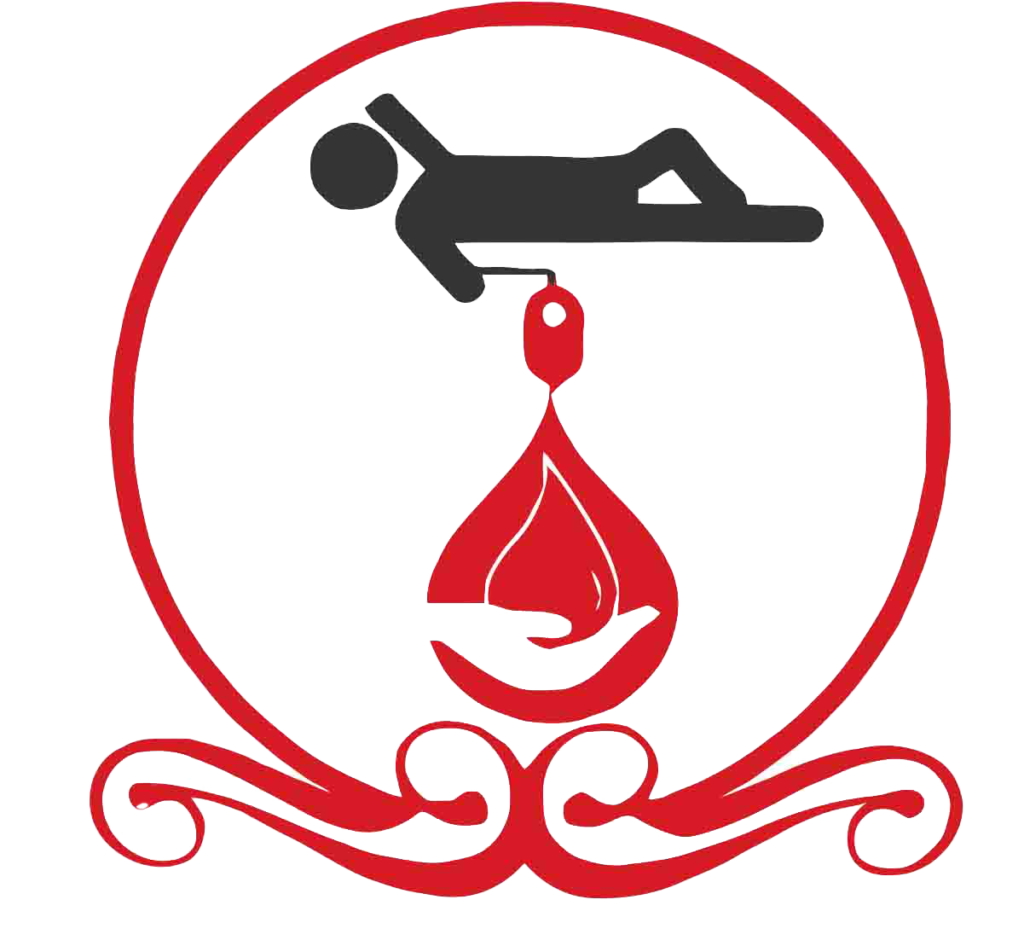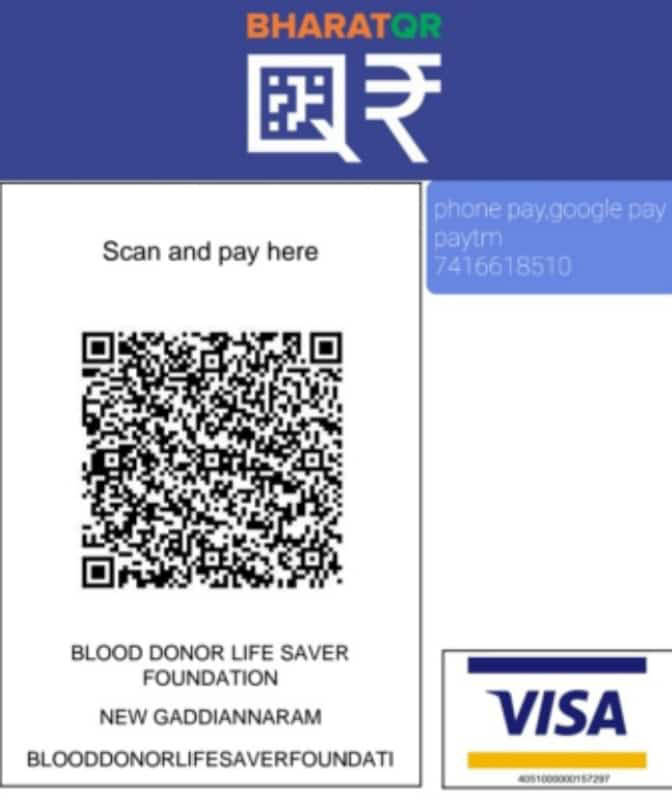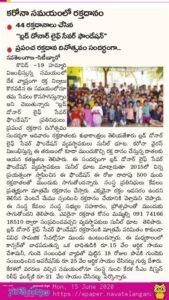
Blood Donation Camp Organized for Thalassemia Children
Blood Donor Life Saver Foundation successfully organized a blood donation camp on June 2, 2024, at Sri Saraswathi Sishu Mandir, Saidabad, Hyderabad. The camp saw
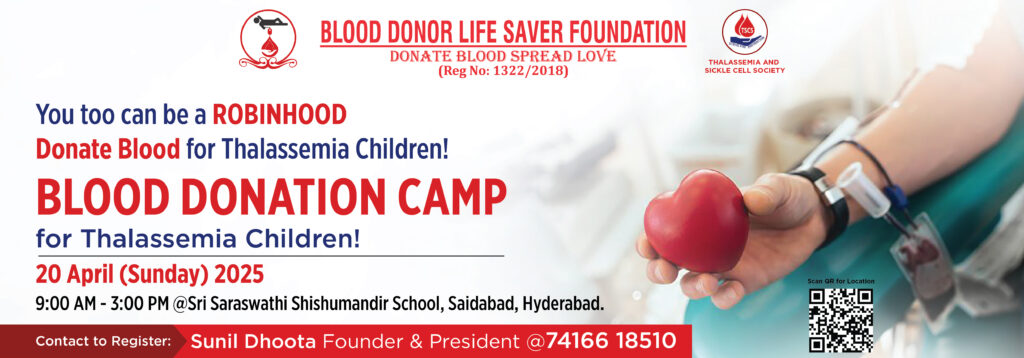
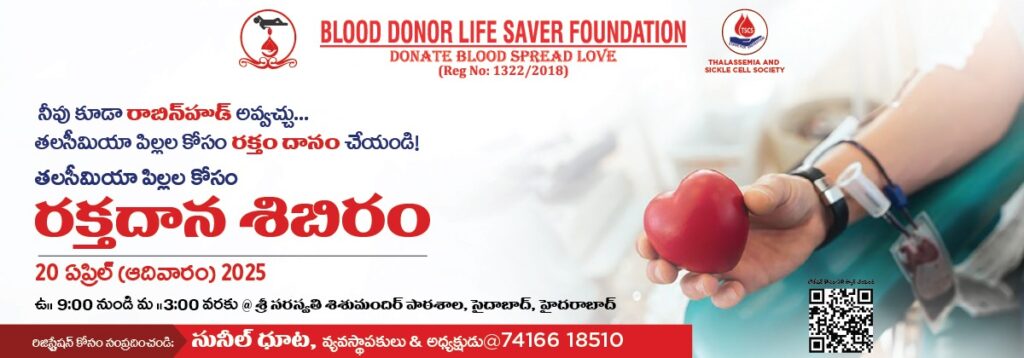
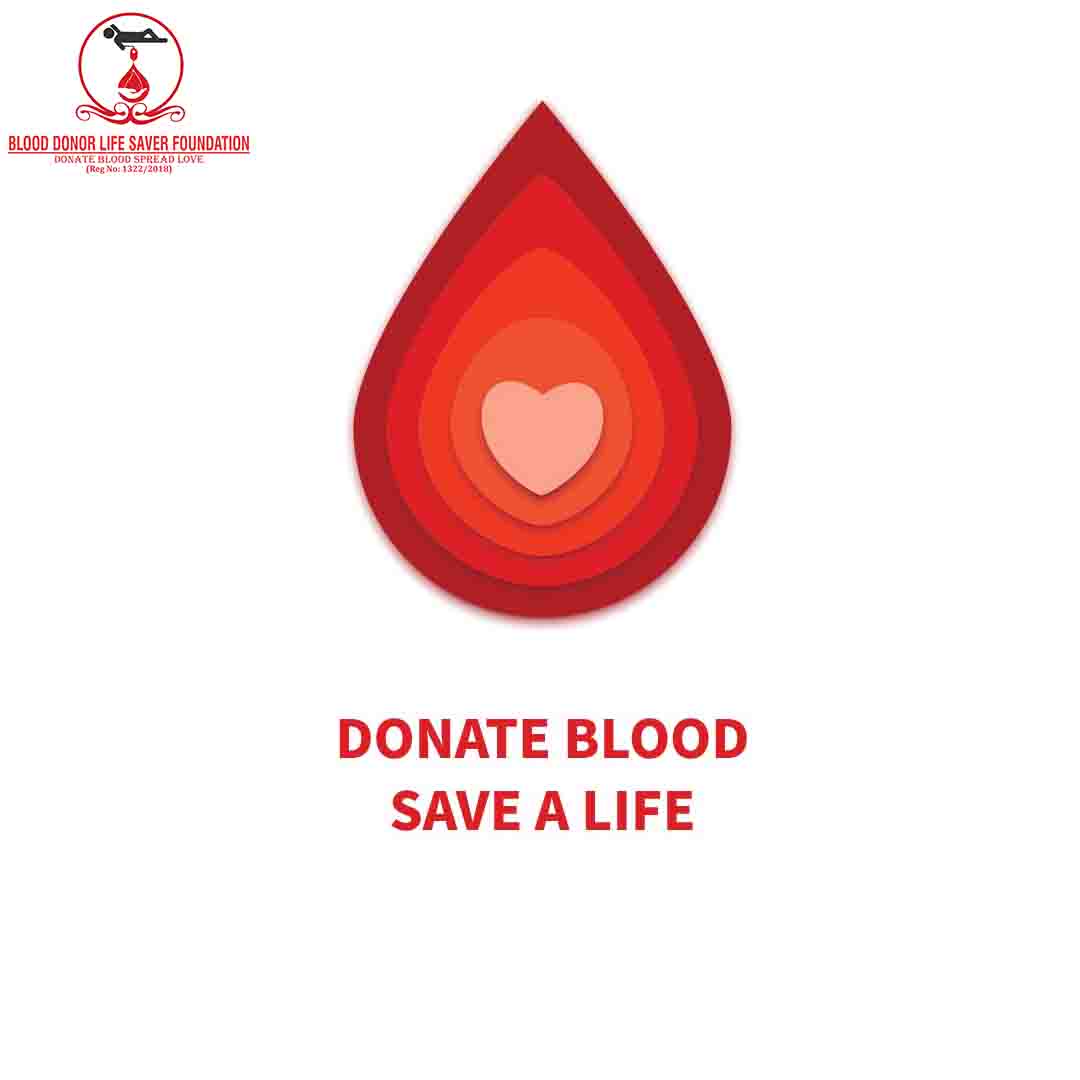
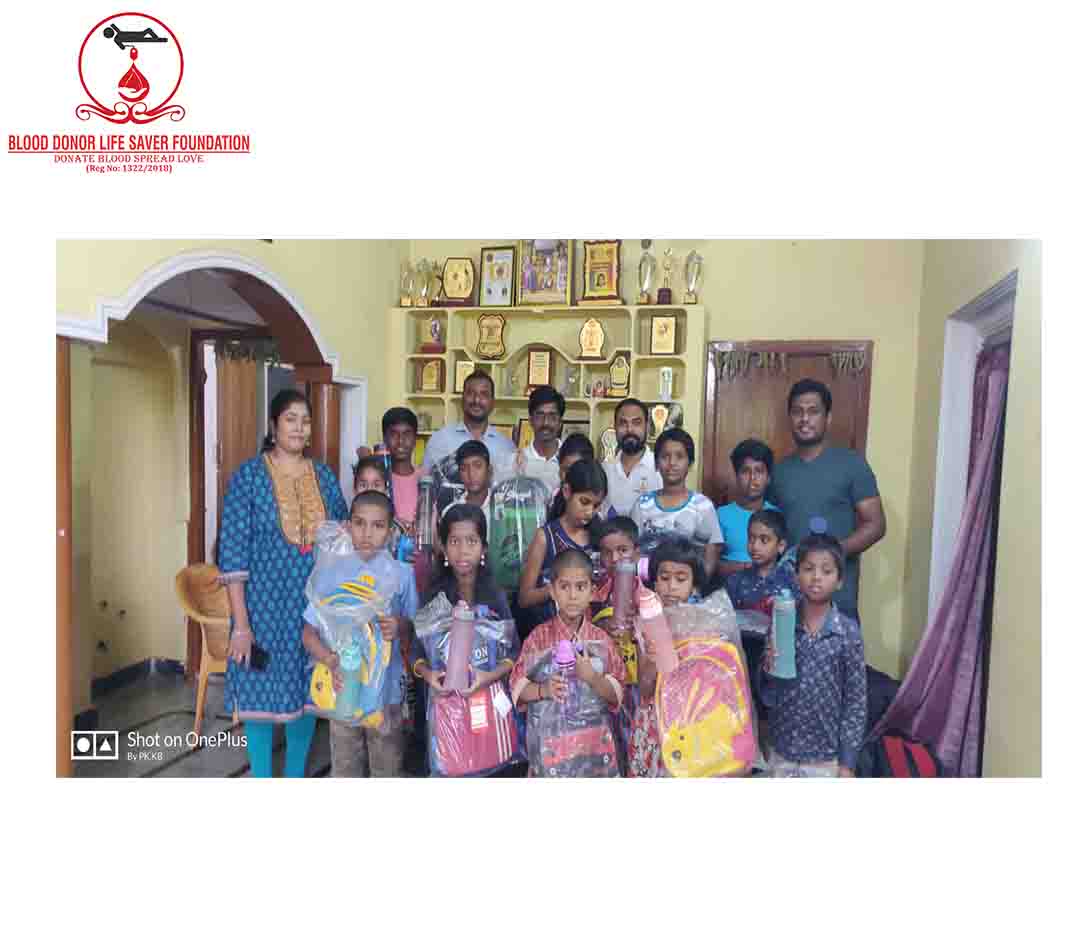
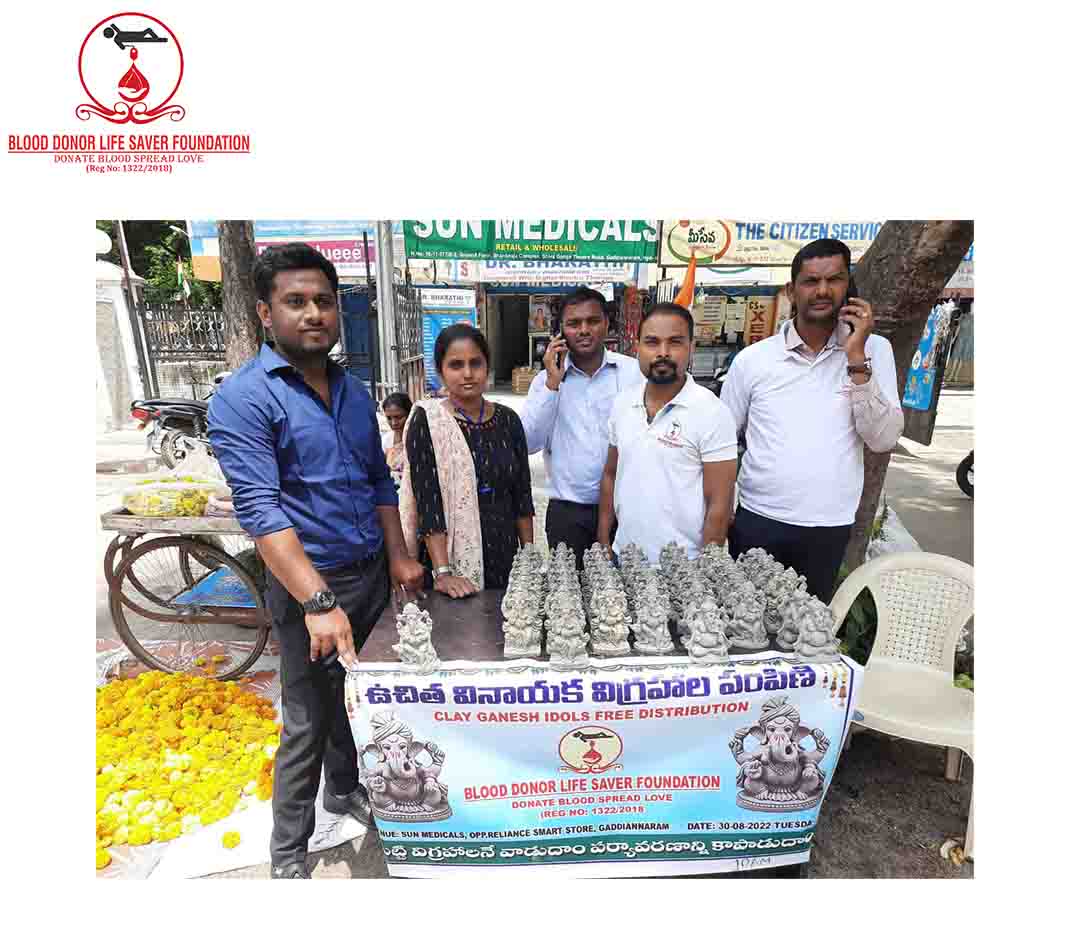
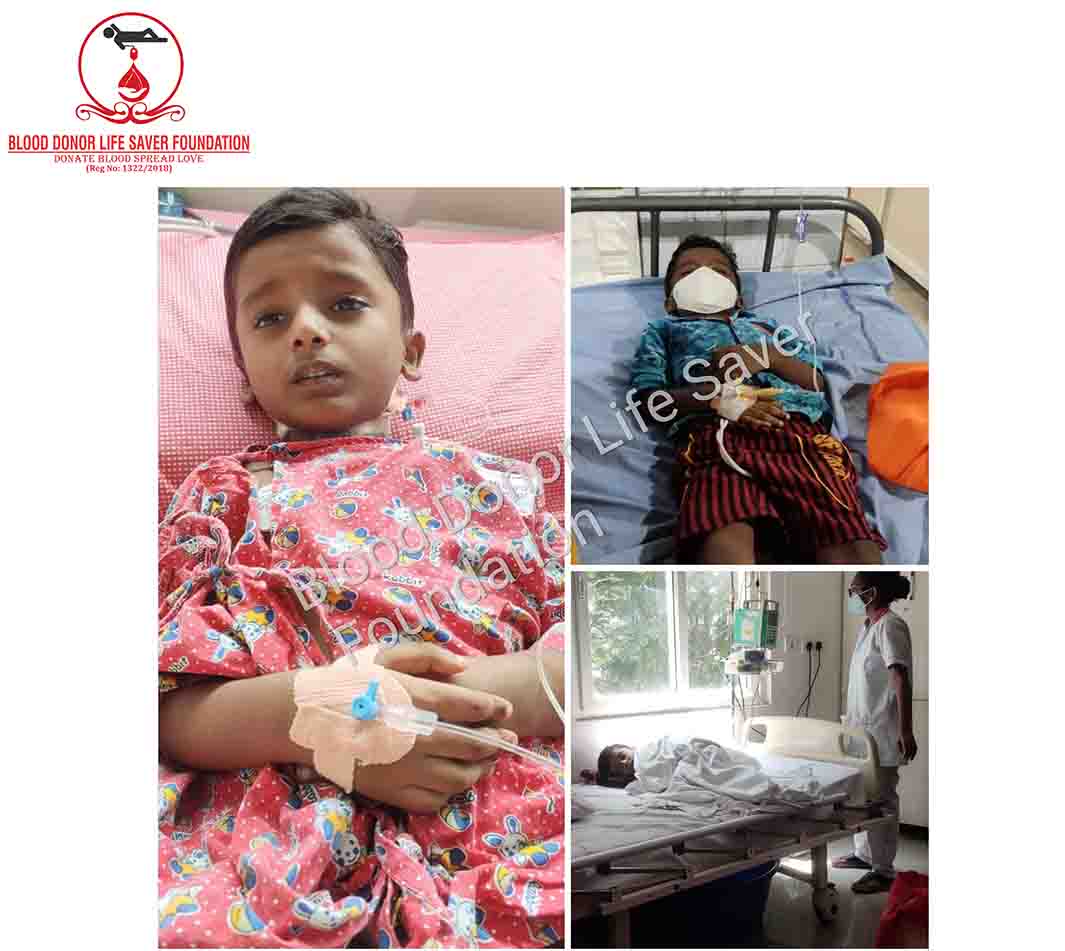
This foundation was started by Mr. Sunil Dhoota in the year 2015 keeping in view to fulfil all blood requirements intime. He started the foundation in association with his friends with the motto of “Donating Blood Voluntarily without expecting any profit or monetary benefits out of it”. Mr. Sunil, Founder of Blood Donor Life Saver group expects the members of the foundation to come forward voluntarily without any constraints on time and distance.

Blood Donor Life Saver Foundation successfully organized a blood donation camp on June 2, 2024, at Sri Saraswathi Sishu Mandir, Saidabad, Hyderabad. The camp saw
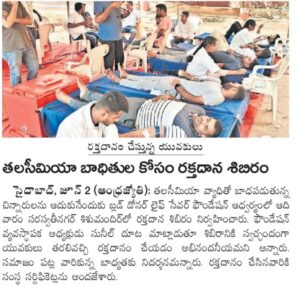
Blood Donor Life Saver Foundation successfully organized a blood donation camp on June 2, 2024, at Sri Saraswathi Sishu Mandir, Saidabad, Hyderabad. The camp saw

In April 2018, we had the privilege of supporting the children at Divyajyothi Orphanage Home, Saroornagar, by donating school bags, notebooks, and stationery worth ₹21,000.

Ms. Vijaya Durga, a resident of Warasiguda and a cancer patient, sought financial assistance from our foundation. She is battling 3rd stage cancer and receiving

During Ganesh Chaturthi 2022, our foundation distributed 300 eco-friendly Ganesh idols in Dilsukhnagar, Hyderabad, promoting environmental sustainability and raising awareness about preserving the ecosystem

In July 2022, we donated school uniforms, bags, sports attire, and water bottles to the students at Amma Prema Orphanage in Boduppal, fostering educational opportunities
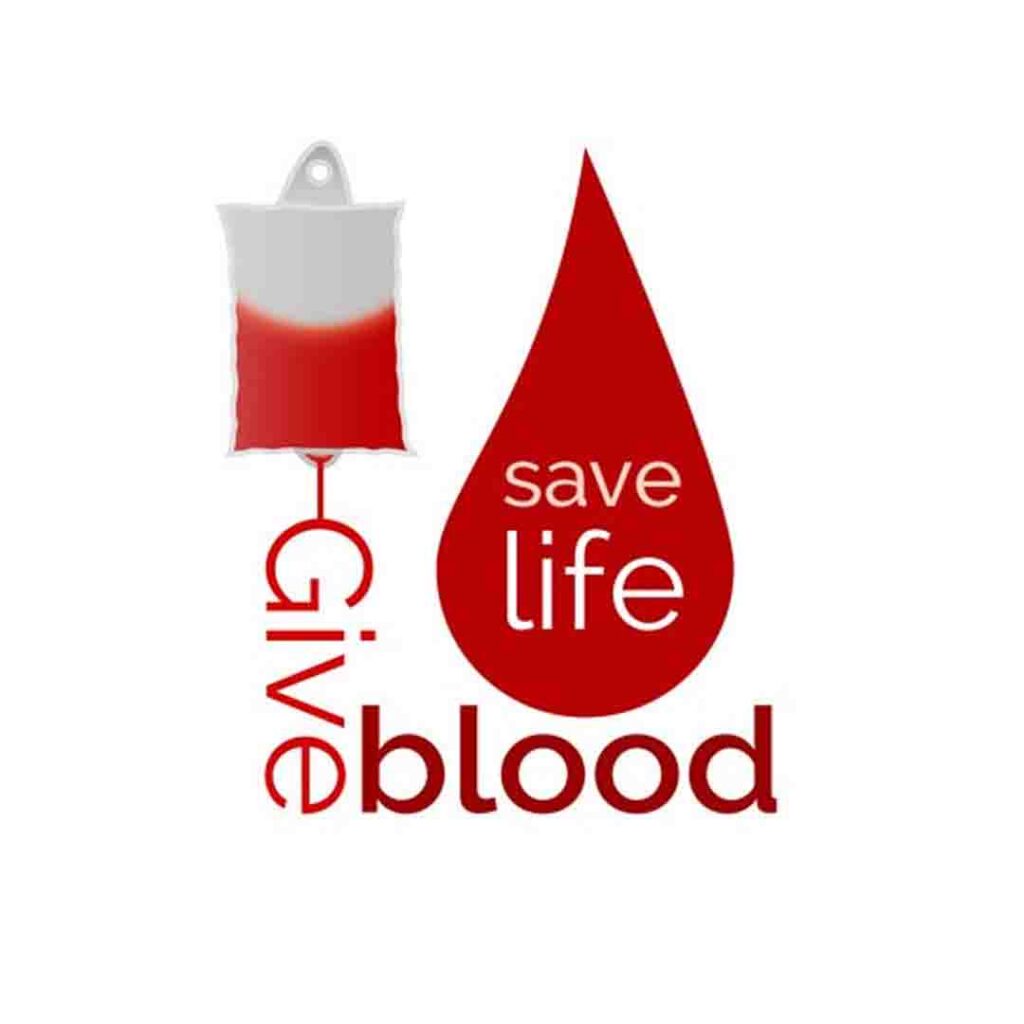
The Blood Donor Life Saver Foundation is a non-profit organization dedicated to promoting and facilitating blood donation to save lives.
BDLSF’s mission is to increase awareness about the importance of blood donation, recruit and retain blood donors, and ensure a safe and adequate blood supply for patients in need.
BDLSF achieves its mission through various initiatives such as organizing blood donation drives, conducting educational campaigns, collaborating with healthcare institutions, and providing support to blood donors.
Generally, individuals who are in good health, weigh at least 110 pounds, and are 17 years of age or older (in most states) may be eligible to donate blood. Specific eligibility criteria may vary based on factors like medical history and current health conditions.
BDLSF regularly organizes blood donation drives at community centers, schools, workplaces, and other public venues. You can also visit our website or contact us directly to find upcoming donation opportunities or schedule an appointment at a donation center.
Yes, donating blood is safe for most people. BDLSF follows strict protocols to ensure the safety of both donors and recipients. Our staff are trained professionals who adhere to rigorous standards for blood collection, testing, and storage.
The blood donation process typically involves registration, a brief medical history questionnaire, a mini-physical examination (including checking vital signs like blood pressure, pulse, and hemoglobin levels), and the actual donation, which usually takes about 8-10 minutes.
In most cases, individuals can donate whole blood every 56 days (8 weeks). However, specific donation intervals may vary depending on factors like donation type (whole blood, plasma, platelets), donor health, and local regulations.
